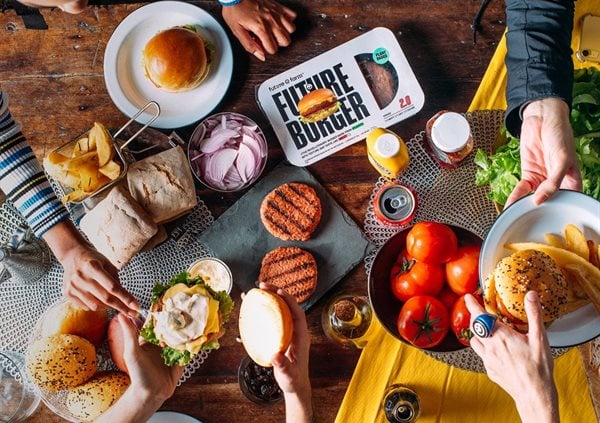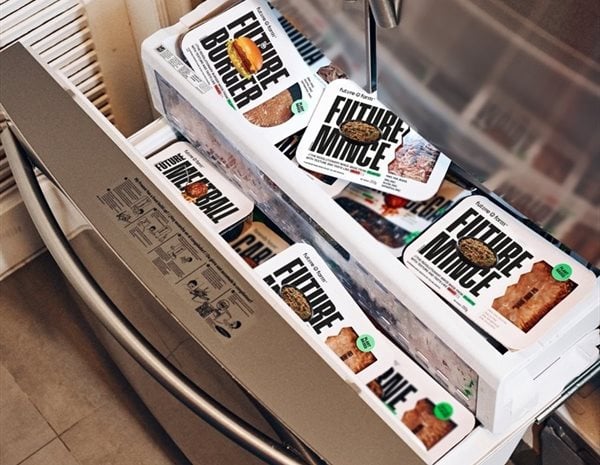
Top stories






More news


Marketing & Media
Ads are coming to AI. Does that really have to be such a bad thing?














The brand's Future Burger, Future Sausage, Future Meatballs and Future Mince are designed to tempt meat-lovers into eating plant-based meals occasionally, and to satisfy vegetarians and vegans with the eco-friendly, GMO-free, gluten-free and Halaal range made using all-natural ingredients.
Launched in 2019 as Fazenda Futuro by food-tech entrepreneurs Marcos Leta and Alfredo Strechinsky, the young company started by convincing its native Brazil, the third biggest meat-eating nation in the world, to adopt meatless burgers as a lifestyle choice. Plant-based meat alternatives were relatively unknown in the country at the time.
Only three months after launching the company attracted $8,5m in investment through the venture capital fund Monashee Capital Inc. to expand its operations. During its first 18 months of operation, it sold 9 million burgers (23% of all burger sales in the country’s biggest retailer) and was ready to take the winning recipe to the world.

Now Brazil’s first plant-based meat startup has become one of the fastest-growing companies in the industry, and the most valuable food-tech startup in Latin America. Future Farm products are available in 18 countries around the world – including the UAE, UK, Germany, and Netherlands, intending to double this number by the end of 2021.
Within six months of arrival on the UAE market in 2020, Future Farm products had outperformed existing competitors taking a substantial market share in the region. The company has since consolidated its reputation as one of the few global giants in the plant-based food industry.
Future Farm markets its products as tasting, feeling and looking like meat, yet it only uses natural plant ingredients – including chickpea, pea and soy protein, with beetroot as colouring. The idea is to woo meat-eaters to a more flexitarian lifestyle by creating a product that is as juicy, tasty and satisfying as their favourite burgers, and to reduce the global demand for animal meat. Future Farm states that it continues to invest almost a third of gross revenue into R&D, continually testing and improving products.
Pedro Zuim, marketing director for Future Farm, says, “By replicating the same satisfaction we get from eating meat, using plants, we have revolutionised food in a way that is good for the people, the planet, and your plate. We aim to make Future Farm a truly global brand and improve the world through nutrition.”
As young Brazilians who can see first-hand the critical plight of the Amazon Rainforest, Leta and Strechinsky are driven by concern for the environment, climate change and the depletion of natural resources. In developing Future Farm products, they insist only on using certified deforestation-free and GMO-free soy, peas and chickpeas, supporting farmers who are growing ethically as members of the Responsible Soy Association.
“We are no longer just a trend; we have become a reality from which positively there is no way back. People are increasingly looking for more sustainable food alternatives,” says founder Marcos Leta.